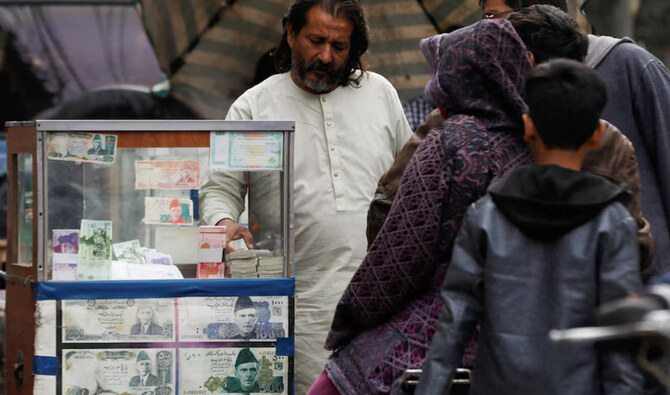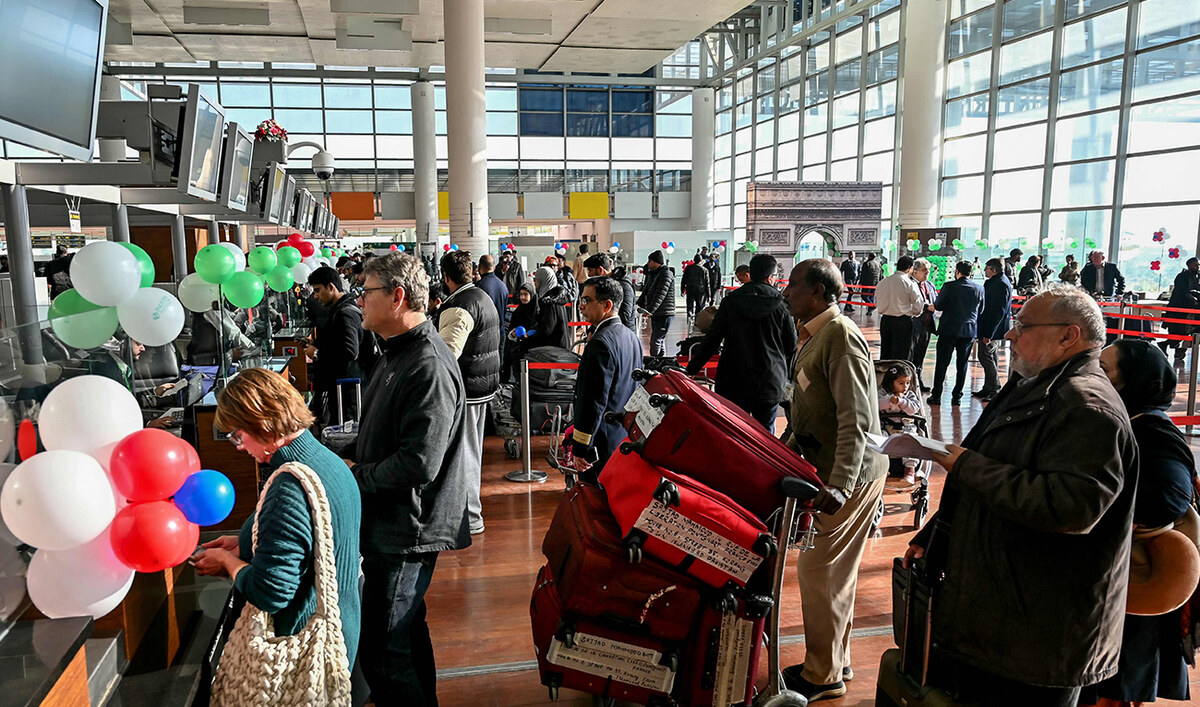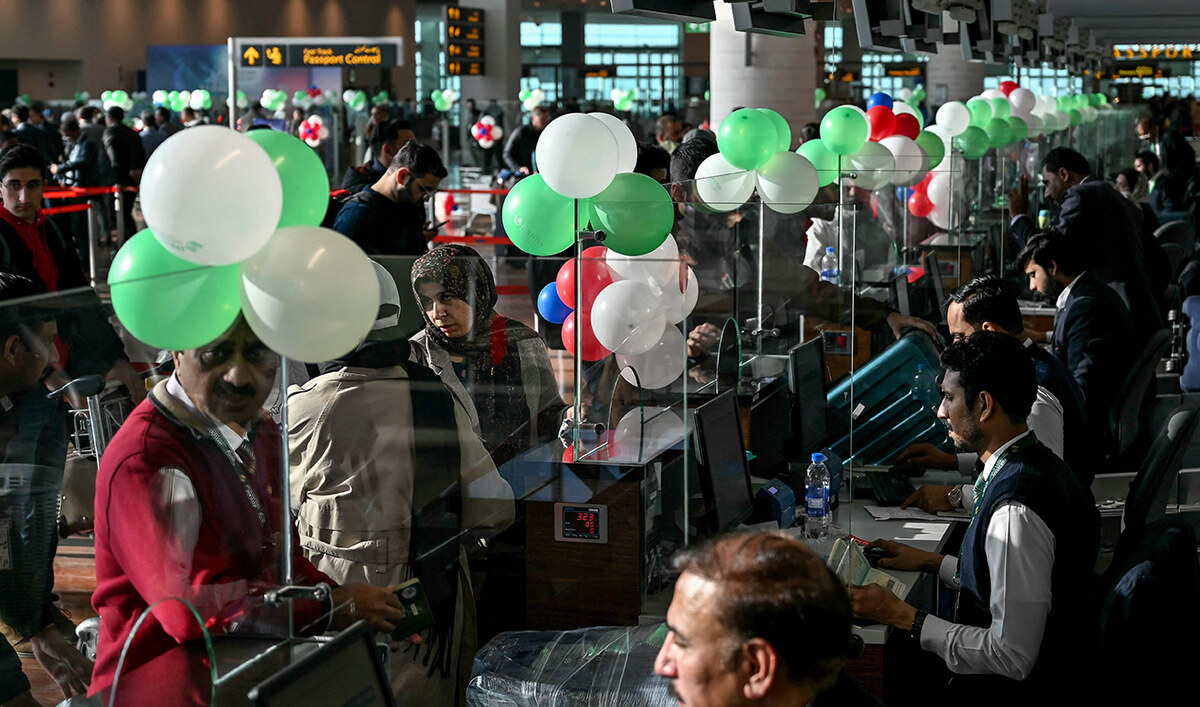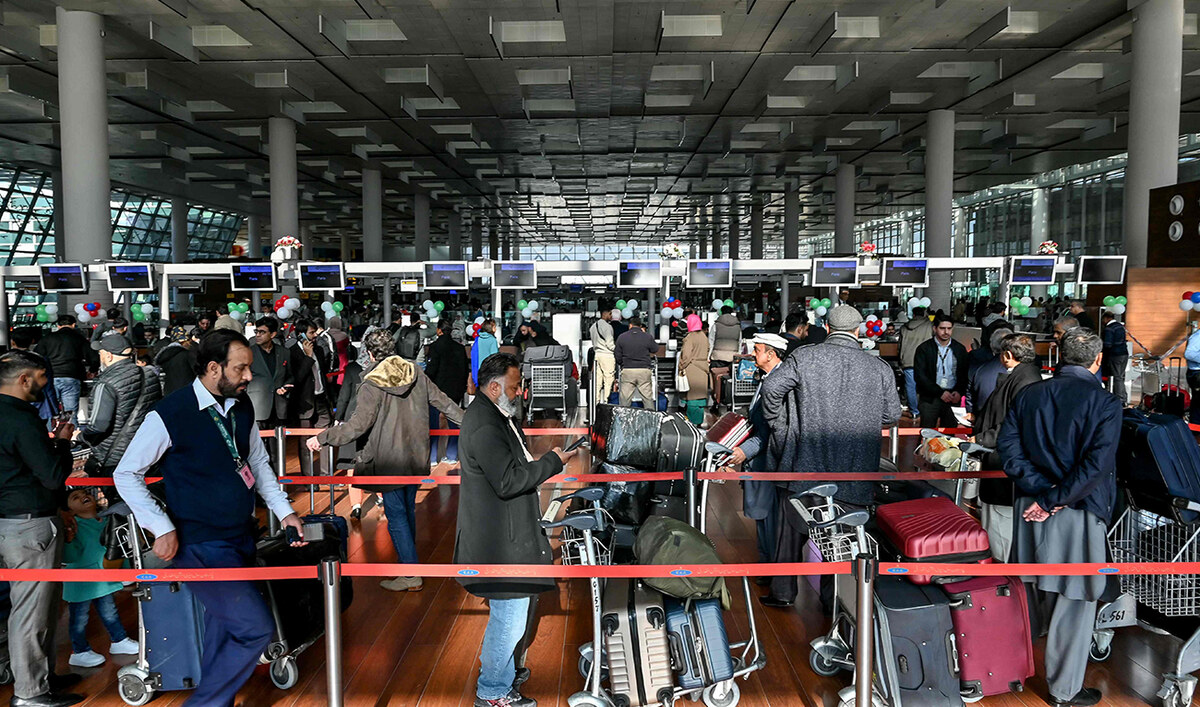ISLAMABAD: An inquiry committee at the Pakistan Institute of Medical Sciences (PIMS) will formally initiate an investigation on Monday to determine how journalist Arshad Sharif’s photographs taken during his autopsy were leaked to a private news channel.
A prominent Pakistani broadcaster who became a harsh critic of the incumbent government and the military toward the end of his life, Sharif was killed on October 23 when his car was said to have sped up and drove through a checkpoint outside the Kenyan capital, prompting the police to open fire.
The law enforcement officials in Nairobi expressed regret over the incident, saying it was a case of “mistaken identity” during a search for a car involved in a child abduction case. However, a Pakistani team of investigators that recently visited Kenya questioned the narrative of the officials in Nairobi while describing Sharif as “a victim of targeted killing.”
A Pakistani news channel, Dunya TV, recently shared pictures of the slain journalist taken during the autopsy, saying he had been tortured before his death.
“The following officers/officials are hereby requested to attend the inquiry committee meeting on 14/11/2022 at 9:30AM in Conference Room, IH, PIMS,” said the commission’s head, Dr. Naveed A. Shaikh, in a circular issued on Saturday in which he listed down the names of doctors and technical workers involved with Sharif’s autopsy.
The two-member inquiry committee was formed the hospital director, Dr. Khalid Masud, on Friday and asked to submit its report within three days.
It may be recalled that Sharif’s mother had approached the Islamabad High Court earlier this month to get her son’s delayed postmortem report.
She also requested the court that the document should not be made public without her family’s permission.
According to local media reports, the hospital authorities have also decided to approach Pakistan Electronic Media Regulatory Authority (Pemra) against the news channel for showing Sharif’s photographs and hurting “the family’s feelings.”
“In my opinion, it was unethical and Pemra should take notice,” the hospital director told Dawn newspaper.
Hospital to formally begin probe into Arshad Sharif’s leaked photos during autopsy on Monday
https://arab.news/jfjzv
Hospital to formally begin probe into Arshad Sharif’s leaked photos during autopsy on Monday

- A Pakistani news channel recently shared pictures of the slain journalist, saying he had been tortured before his death in Kenya
- The hospital also wants Pakistan’s media regulatory authority to act against the news channel for airing ‘unethical’ content
Pakistan PM congratulates Joseph Aoun on election as new Lebanon president

- Aoun’s election came weeks after a ceasefire deal halted a 14-month conflict between Israel, Lebanese group Hezbollah
- PM Shehbaz Sharif says Pakistan values its ties with Lebanon and looks forward to strengthen bilateral cooperation
ISLAMABAD: Prime Minister Shehbaz Sharif on Friday congratulated Joseph Aoun for being elected as the new president of Lebanon, expressing Pakistan’s interest in strengthening bilateral cooperation between both countries.
Aoun’s election came weeks after a tenuous ceasefire agreement halted a 14-month conflict between Israel and the Lebanese militant group Hezbollah and at a time when Lebanon’s leaders are seeking international assistance for reconstruction.
Aoun, no relation to former President Michel, was widely seen as the preferred candidate of the United States, whose assistance Lebanon will need as it seeks to rebuild.
In his message on X, Sharif wished Aoun success in his endeavors to lead Lebanon toward peace, stability and prosperity.
“Pakistan values its ties with Lebanon and looks forward to strengthen our bilateral cooperation,” the Pakistan prime minister said.
Pakistan and Lebanon share close relations. In December, Lebanon helped Islamabad safely evacuate around 300 Pakistani nationals stranded in Syria and transport them back home via chartered flights from Beirut.
Pakistan has also sent several relief consignments for the people of Lebanon during Israel’s bombardment of the Middle Eastern country.
Pakistan records 5.6% increase in remittances month on month

- Overseas workers remittances stood at $3.1 billion in the month of December
- The inflows rose by 29.3 percent in 2024 as compared to the previous year
ISLAMABAD: Pakistan recorded a 5.6 percent increase in remittances in December on a month-on-month basis, Prime Minister Shehbaz Sharif said on Friday, congratulating the nation on the record inflows.
Remittances bring billions of dollars annually from overseas Pakistanis and are vital to Pakistan’s economy. These inflows bolster foreign exchange reserves, stabilize the balance of payments, and support the Pakistani currency.
Overseas workers remittances stood at $3.1 billion in the month of December, according to a statement issued from Sharif’s office. The inflows rose by 29.3 percent in 2024 as compared to the previous year.
Sharif said the record increase in remittances was a testament to the determination of overseas Pakistanis to play their role in the development of the South Asian country.
“After economic stability, Pakistan has embarked on the path of economic development,” he said.
Pakistan narrowly avoided a sovereign default in 2023 by clinching a last-gasp $3 billion loan program from the International Monetary Fund (IMF).
The South Asian country has since made some economic gains, most notably slowing the annual consumer inflation to 4.1 percent in December. This was down from 38 percent in May 2023.
Pakistan’s government has vowed to undertake economic reforms mandated by the IMF which include tightening fiscal policies, privatizing loss-making state-owned enterprises and enhancing tax revenues.
“The government of Pakistan is committed to the country’s development and public welfare,” Sharif reassured in his statement.
Pakistan to launch pilot motorbike patrol for security of motorways

- Motorways in Pakistan have a dedicated police force, but various crimes, including rapes, have been reported in the past
- Communications minister says 30-35 motorbikes will boost motorway security and improve response time in the first phase
ISLAMABAD: Pakistan’s Communications Minister Abdul Aleem Khan has ordered the launch of a pilot motorbike patrol to enhance security of motorways in the country, Pakistani state media reported on Thursday.
Pakistan’s motorway network has improved road connectivity for the people and the government has deployed a dedicated motorway police force, installed CCTV cameras and established emergency response systems, but security concerns have persisted for travelers.
In 2020, the gangrape of a woman traveling from Lahore to Gujranwala via the M-11 motorway in front of her children sparked widespread outrage in the country, leading to calls for enhanced security measures. In 2023, a motorway police officer was also arrested on allegations of raping a woman on the highway, according to a report in Dawn newspaper.
“Federal Minister for Communications Abdul Aleem Khan has directed the motorways authority to launch a pilot motorbike service aimed at enhancing security and surveillance on motorways,” the Pakistan Television (PTV) broadcaster reported.
“The motorway police have been instructed to utilize existing resources to kick-start the service with plans for expansion in the future.”
Khan directed the motorway police to include 30-35 motorbikes for patrolling in the first phase to boost security measures and improve response times, according to the report.
The communications minister urged the National Highway Authority, Motorway Police, Frontier Works Organization, and local police to collaborate in securing the motorways.
“Motorway police must take maximum responsibility for ensuring the safety of citizens while a robust mechanism should be developed to make motorway travel as secure as possible,” he added.
OIC secretary-general arrives in Pakistan to attend summit on girls’ education in Muslim countries

- The conference’s aim is to stress Islam’s message that both men, women have right to education
- Nobel Peace Prize Laureate Malala Yousafzai will also attend the summit in Islamabad in person
ISLAMABAD: Organization of Islamic Cooperation (OIC) Secretary-General Hissein Brahim Taha has arrived in Pakistan to attend a global conference on girls’ education in Muslim countries, according to the Pakistani education ministry.
Pakistan’s education ministry will host the global conference titled, “Girls’ Education in Muslim Communities: Challenges and Opportunities,” in Islamabad on Jan. 11-12.
Around 150 representatives from 47 countries, including education experts, religious scholars, diplomats, and politicians are expected to partake in the summit.
Pakistani Education Minister Khalid Maqbool Siddiqui received the OIC secretary-general upon arrival in the South Asian country.
“Bringing together global leaders, educators, and changemakers to discuss innovative solutions and inspire progress for #GirlsEducation in Muslim communities,” the Pakistani education ministry said on Friday.
“This landmark event is a step toward creating opportunities, breaking barriers, and empowering future generations. Let’s ensure #EducationForAll and drive meaningful #GlobalConversations that transform lives!“
Prime Minister Shehbaz Sharif will inaugurate the conference and deliver a keynote address at the opening session on Saturday. Pakistan’s foreign office said Sharif will reaffirm the nation’s commitment to promoting girls’ education and gender equality.
An “Islamabad Declaration” will be announced at the end of the conference on Sunday that would outline decisive steps to transform girls’ education in Islamic countries, according to Siddiqui.
Nobel Peace Prize Laureate Malala Yousafzai will also attend the summit in person, a spokesperson for the Malala Fund charity confirmed.
Yousafzai was evacuated from Pakistan in 2012 after being shot by the Pakistan Taliban, who were enraged by her activism, and she has returned to the country only a handful of times since.
“I am excited to join Muslim leaders from around the world for a critical conference on girls’ education,” she said Friday in a post on X.
“On Sunday, I will speak about protecting rights for all girls to go to school, and why leaders must hold the Taliban accountable for their crimes against Afghan women & girls.”
Pakistan’s neighbor Afghanistan is the only country in the world where girls and women are banned from going to secondary schools and universities.
On Thursday, Siddiqui said the primary aim of the conference is to stress the implementation of the Islamic message, which clearly states that both men and women have the right to education.
“By promoting girls’ education, we can build better homes, a better society and a stronger nation,” he said.
The Pakistani education minister hoped that Afghanistan would also join representatives from other Islamic countries and attend the conference in Islamabad.
“We have extended an invitation to Afghanistan to participate in this conference and hope that their delegation will attend as it is a very important neighboring country,” he told reporters at a media briefing in Islamabad.
Since the Taliban’s return to power in 2021, at least 1.4 million Afghan girls have been denied access to secondary education, according to a report by the United Nations International Children’s Emergency Fund (UNICEF) released in August last year.
Siddiqui said everyone respects tribal customs and cultures, but all such practices must align with Islamic values in Muslim countries, adding that nothing holds precedence over them.
“In Islam, there is no justification for restricting women’s education,” he added.
First PIA flight leaves for Paris as Pakistani carrier resumes Europe operations

- PIA flights to Europe were suspended after an air crash in Karachi that killed 97 people in 2020
- The resumption of flights to Europe will boost PIA’s revenue and improve privatization prospects
ISLAMABAD: The Pakistan International Airlines (PIA) on Friday resumed its Europe operations with a flight to Paris, the Pakistani national air carrier said, following the removal of a four-year ban by European regulators.
The European Union Aviation Safety Agency (EASA) suspended PIA’s authorization to operate in the EU in June 2020 over concerns about the ability of Pakistani aviation authorities to ensure compliance with international standards.
EASA, United Kingdom and United States authorities suspended permission for PIA to operate in the region after Pakistan began investigating the validity of pilots’ licenses following a deadly plane crash that killed 97 people.
On Friday, PIA said it was resuming two direct weekly flights to Paris, and the first flight took off from Islamabad at 12:40pm Pakistan time.

“The suspension of flights caused billions of dollars in losses to the national airline and damaged its reputation,” Prime Minister Shehbaz Sharif said in a statement.
“By the grace of Allah, the government has restored the image of the national airline. After the resumption of flights to Europe, PIA is moving toward progress.”
In November, the EASA announced it had lifted the ban, however, the airline remains barred from flying in the UK and the United States. The airline flies to multiple cities inside Pakistan, including the mountainous north, as well as to the Gulf and Southeast Asia.

PIA, which employs 7,000 people, has long been accused of being bloated and poorly run — hobbled by unpaid bills, a poor safety record and regulatory issues.
Pakistan’s government has said it is committed to privatising the debt-ridden airline and has been scrambling to find a buyer. Late last year, a deal fell through after a potential buyer reportedly offered a fraction of the asking price.
The government hopes the opening of European routes, which officials expect will be followed by a similar announcement by the UK later this year, will boost its selling potential.
PIA posted losses of $270 million in 2023, according to local media. Its liabilities were nearly $3 billion, about five times the total worth of its assets.

In the same year, amid a national economic crisis, dozens of domestic flights were canceled when it could not afford fuel for its planes.
PIA came into being in 1955 when the government nationalized a loss-making commercial airline, and enjoyed rapid growth until the 1990s.










